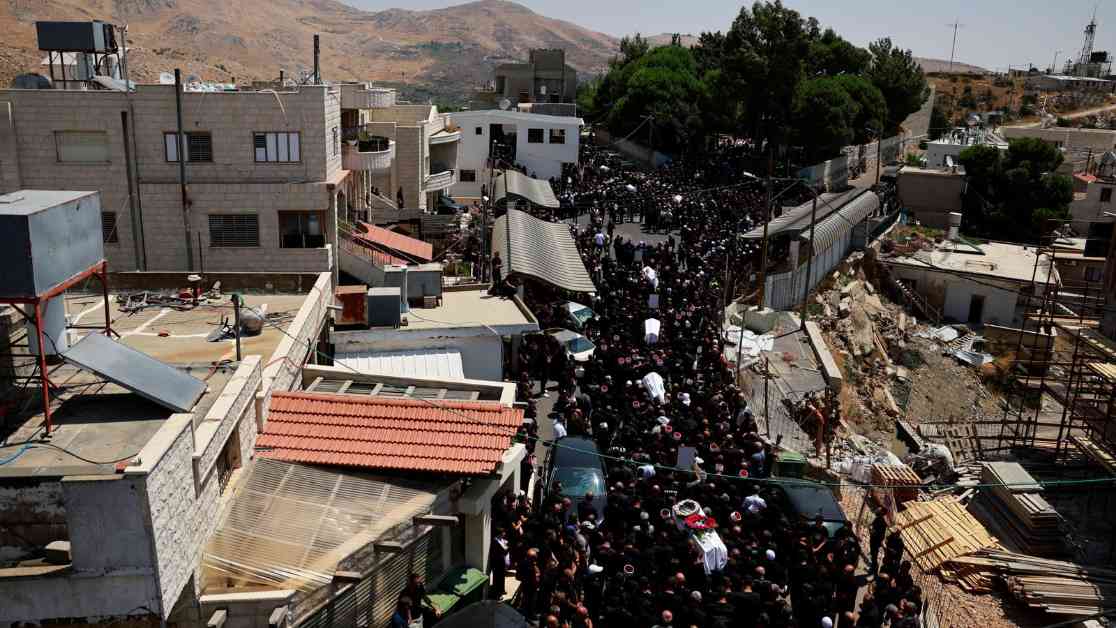The recent attack on a football pitch in the community of Majdal Shams has left many people wondering about the implications for the ongoing conflict between Israel and Hezbollah along the Lebanese frontier. The incident resulted in the tragic deaths of 12 young individuals, with 20 others sustaining injuries. The casualties were between the ages of 10 and 20, highlighting the devastating impact of the assault.
Israel has pointed fingers at Iran-backed Hezbollah for carrying out the attack, citing evidence that a rocket launched from southern Lebanon was of Iranian origin. The rocket, identified as an Iranian-made Falaq-1 rocket, was equipped with a 50kg warhead, underscoring the lethal nature of the strike. Hezbollah, on the other hand, claimed responsibility for firing rockets at an Israeli military headquarters in retaliation for an IDF airstrike that killed four individuals in southern Lebanon.
Despite the escalating tensions between the two sides, Israel’s chief military spokesman, Daniel Hagari, noted that the IDF is not anticipating a significant escalation in the conflict based on current assessments. This stance is reinforced by the fact that there have been no changes in the Home Front Command’s operating instructions, suggesting that an all-out war is not imminent.
Hezbollah, usually vocal about its military actions, denied any involvement in the attack, stating that it had no connection to the tragic incident. This public denial indicates that the organization is keen on avoiding associations with the deaths of innocent civilians, particularly children playing in a community playground.
Israeli Prime Minister Benjamin Netanyahu, who cut short his trip to the United States, has vowed a robust response to Hezbollah’s actions, promising that the militant group will face severe consequences. Despite the strong rhetoric from both sides, the prevailing sentiment is that neither Israel nor Hezbollah is eager to engage in a full-scale war, as evidenced by efforts to de-escalate tensions since the conflict began on October 8.
The recent events serve as a sobering reminder of the volatile situation along the Israeli-Lebanese border, where sporadic clashes and retaliatory measures have become commonplace. As the international community watches closely, the hope is that both parties will exercise restraint and prioritize diplomacy to prevent further loss of life and escalation of hostilities in the region.












